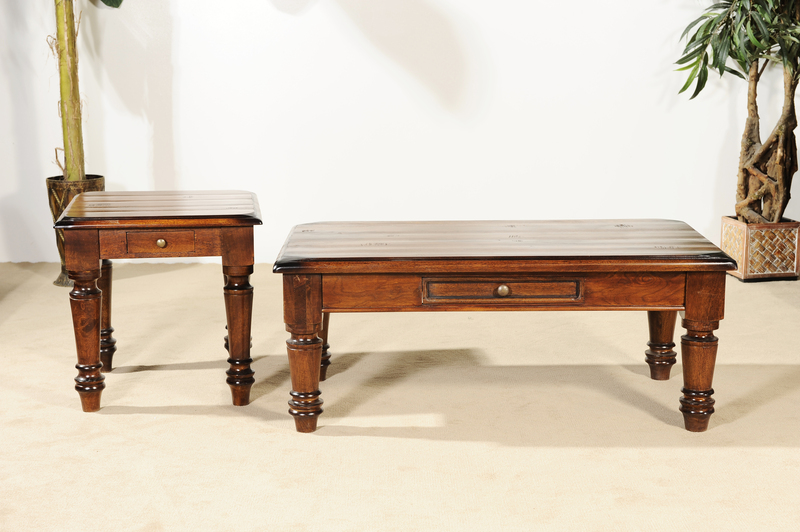
Effortless Plant Pot Disposal Solutions: Green Ways to Clear Out Unwanted Pots
If you're an avid gardener or houseplant enthusiast, plant pot disposal has probably become an afterthought. Over time, empty nursery pots, ceramic planters, and broken containers pile up, overtaking valuable space in your shed, garage, or balcony. But what's the best way to dispose of plant pots? What can you do to ensure your unwanted garden containers are handled responsibly and sustainably?
This comprehensive guide covers a variety of effortless plant pot disposal solutions. We'll explore eco-friendly options, clever reuses, recycling opportunities, and even community-driven approaches to help you clear out old pots without harming the environment. Whether you're a green thumb or a beginner, you'll discover practical tips to simplify the process.
Table of Contents
- Understanding the Plant Pot Disposal Problem
- Can You Recycle Plant Pots?
- Effortless Disposal of Plastic Plant Pots
- Ceramic and Terracotta Destroyed
- Upcycling and Reusing Old Plant Pots
- Donating Unused Plant Pots
- Creative and Community Disposal Solutions
- Tips for Minimizing Future Pot Waste
- Frequently Asked Questions on Plant Pot Disposal
Understanding the Plant Pot Disposal Problem
Every year, gardeners purchase millions of plants housed in small plastic or clay pots. These handy containers keep seedlings safe and garden centers organized, but they're rarely intended for long-term use. After repotting, pots are usually discarded, creating a significant waste stream that creates environmental concerns:
- Plastic nursery pots are often made of materials that are challenging to recycle.
- Broken ceramic and terracotta pots take centuries to decompose in landfills.
- Disposal increases landfill waste and, in some cases, toxins leach into the environment.
By finding efficient plant pot disposal solutions, we not only cut down on clutter but also contribute to a more sustainable planet.
Can You Recycle Plant Pots?
Recycling is often the first solution we consider. But are plant pots recyclable? The answer: It depends on the material and your local recycling rules.
- Plastic plant pots - Most are made from polypropylene (resin code 5), high-density polyethylene (HDPE, code 2), or polystyrene (code 6). Not all curbside recycling accepts these.
- Terracotta and clay pots - These are not recyclable through standard recycling because they're fired ceramics.
- Ceramic/glazed pots - Like terracotta, not accepted in standard recycling systems.
It's essential to check with your local recycling provider before tossing pots in your blue bin. Many centers have special drop-off points for hard plastics and ceramics.
Effortless Disposal of Plastic Plant Pots
Because most garden pots are plastic, let's focus on easy solutions for plastic plant pot disposal.
- Garden center recycling programs: Many nurseries participate in plant pot take-back schemes. They'll gladly accept clean, undamaged pots for reuse or proper recycling. Check your local garden store for a collection bin.
- Specialty recycling events: Municipalities sometimes organize seasonal events for recycling garden plastics, including pots and trays.
- Big-box retailer options: Some chains like Lowe's or Home Depot have garden pot recycling programs, typically in the spring and summer.
- Check resin codes: Only plastics marked with certain numbers (2, 5) are accepted by most recyclers. Remove soil and labels first for easier processing.
- Mail-in recycling: Services like Gimme 5 or TerraCycle allow you to mail in hard-to-recycle pots (fees may apply).
Tip: Always rinse pots and remove any plant material--dirty containers are often rejected by recycling centers.
Ceramic and Terracotta Pot Disposal
While plastic nursery pots have established recycling routes, terracotta and ceramic plant pots demand creative solutions. Consider these effortless plant pot disposal methods:
- Reuse in your garden: Broken terracotta pieces make excellent drainage material or mulch around plants.
- Community art projects: Art teachers or local ceramicists might use shards for mosaics.
- Construction fill: Crushed ceramics can sometimes be used as aggregate in pathways (never dump glazed ceramics directly into soil due to potential toxins).
- Hazardous waste facility: Many transfer stations accept inert ceramics, though rarely through curbside pickup.
For intact but unwanted decorative pots, donation or upcycling is both easy and eco-friendly.
Upcycling and Reusing Old Plant Pots
Looking for creative plant pot disposal solutions? Why not turn trash into treasure! Upcycling is one of the most effortless and rewarding options:
- Repot your own plants: Whenever possible, keep healthy plastic pots for propagating or dividing existing houseplants. It's cost-effective and practical.
- Seed starting: Small pots, cell packs, and trays are perfect for starting seeds indoors each spring.
- Garden organizers: Use old pots for tool storage, plant tags, or organizing shed supplies.
- Craft projects: Painted or decorated pots become holders for office supplies, candle holders, or quirky yard decorations.
- Educational activities: Schools and libraries often use nursery pots for planting workshops with children.
Get creative--plant pots can live on in all sorts of useful ways!
Donating Unused Plant Pots: Share the Green!
If you have a generous pile of usable plant pots, donation is a wonderful, effortless plant pot disposal strategy. Here are some donation solutions:
- Community gardens: Many local gardens need containers for new plantings or organizational projects.
- Schools and nonprofits: Educational programs often seek free pots for science lessons or fundraising plant sales.
- Local nurseries: Small garden centers might gladly accept gently used, clean pots.
- Online freecycle groups: Websites like Freecycle or Buy Nothing make it easy to give away pots locally.
Tip: Always give away clean, intact pots--dirty or cracked ones are less likely to be reused. Stack them neatly and offer in batches for effortless pickup.
Creative and Community Disposal Methods for Plant Pots
For those pots that can't be recycled, donated, or reused, consider these innovative disposal methods:
- Pot swaps: Organize a pot exchange among your gardening friends, or attend a local plant swap event. This keeps pots circulating within the community.
- Bulk drop-off: Some cities offer bulk waste drop-off days, including specialized pickups for garden waste and containers.
- Municipal yard waste: While pots themselves don't decompose, sometimes transfer stations allow drop-offs if they're sorted by material.
- Eco-conscious landscaping companies: Many professional landscapers recycle and repurpose pots through trade associations--ask your local pros!
Tips for Minimizing Future Plant Pot Waste
Prevention is often the most effortless pot disposal solution of all! Reduce the need to discard plant pots with these practical strategies:
- Buy bare-root or bagged plants: Many perennials and shrubs are sold without pots (or with minimal packaging).
- Return nursery pots: Shop at stores that actively participate in pot reuse or recycling programs.
- Choose biodegradable alternatives: Seek out coir, pulp, or peat pots--these can break down in your compost.
- Invest in durable containers: Buy high-quality planters designed for long-term use instead of many cheaper, disposable pots.
- Grow from seed or cuttings: Start your own plants and reuse existing pots season after season.
With these approaches, you can enjoy a thriving garden without accumulating excess waste.
Frequently Asked Questions on Effortless Plant Pot Disposal
-
What's the easiest way to get rid of old plant pots?
The simplest method is to repurpose or donate them to local gardens, schools, or nurseries. For recycling, check if your garden center or city offers drop-off programs. -
Can black plastic nursery pots be recycled?
Black plastic is often not recyclable curbside because recycling scanners can't detect it. Specialized collection bins at nurseries or events are usually the only option. -
Can I compost plant pots?
Only pots labeled "biodegradable," made from coir, paper, or peat, can go into the compost bin. Plastic, ceramic, and terracotta must be handled separately. -
How can I upcycle broken plant pots?
Use terracotta chips for drainage or as mulch, and use shards for decorative mosaics or fairy gardens. -
Do any online companies recycle plant pots?
Yes, companies like TerraCycle and Gimme 5 offer mail-in recycling for certain hard plastics (fees may apply).

Conclusion: Choose the Effortless Plant Pot Disposal Solution That Fits You
While disposing of old plant pots can seem daunting, there are now more effortless and eco-friendly plant pot disposal solutions than ever before. Whether you're dropping them at a garden center, offering them to fellow gardeners, upcycling creative projects, or recycling through specialized programs, each choice keeps waste out of landfills and gives your pots new purpose.
By rethinking plant pot disposal, we can green our homes and help the planet flourish!
Have you found a creative or easy way to handle your old plant pots? Share your story or tip below and help more gardeners benefit from sustainable plant pot disposal solutions!